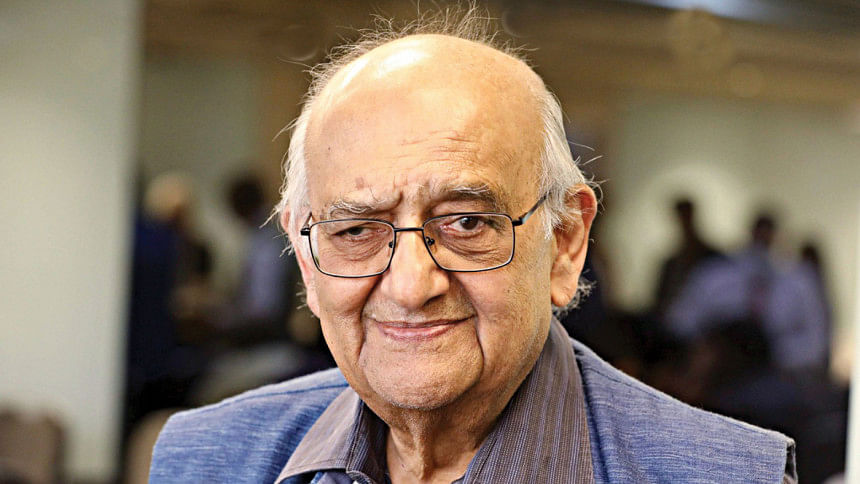Deep-seated injustice needs to end

There is a built-in element of injustice in many sectors, including environment, education, and governance, which needs to be addressed, said renowned economist Prof Rehman Sobhan yesterday.
"Unless you actually have a system of governance, which is contingent on the freely given vote of its citizens and is then accountable to them at all times, then there is always, in each of these areas, a scope for malfunctions …," he said.
Prof Rehman made these remarks while participating in a discussion on the Abdul Ghafur Memorial Lecture, 2024, at the Bangladesh Institute of Development Studies (BIDS).
Economist Nazrul Islam, a visiting professor from the Asian Growth Institute in Japan and former chief of Development Research at the United Nations Department of Economic and Social Affairs, presented the lecture on "Ten Tasks for Future Bangladesh".
The 10 interventions Nazrul spoke about include reducing economic inequality, ensuring good governance, improving democracy and proportional elections, protecting the environment and mitigating climate change impact, introducing village parishad, reducing regional disparity and decentralisation of development, improving social harmony, putting special attention to women, children and the young generation, universal military education, and protecting national resources and enacting a neutral foreign policy.
On the 10 tasks, Prof Rehman said, "… All these relate to the symptoms of a highly unjust society. Each of these interventions is then attempting to address various forms of injustice…"
Speaking at the event, Prof Rounaq Jahan, a distinguished fellow at the Centre for Policy Dialogue (CPD), highlighted the country's biggest challenge as political divisions.
"The political divide is a significant problem here that needs to be addressed … Besides, inequality is also an overarching issue, and it has become very prominent now," she said, attributing this inequality to politics.
Regarding good governance, Prof Jahan emphasised the necessity of addressing the political aspect.
"If we cannot free institutions from breaking down or administration from politicisation, it would not be possible to ensure good governance in the country," she added.
In his lecture, Prof Nazrul highlighted the significant rise in economic disparity in the country.
"First, there has been a sharp increase in income inequality in Bangladesh over the years. Secondly, a comparison with the rest of the world shows that such a massive increase in inequality was not necessary for development," he said.
Presided over by Binayak Sen, director general at the BIDS, Mashiur Rahman, economic affairs adviser to Prime Minister Sheikh Hasina, Kazi Iqbal, research director at the BIDS, Prof Mustafizur Rahman, CPD distinguished fellow, and Prof MM Akash of the Economics department at Dhaka University spoke at the event among others.

 For all latest news, follow The Daily Star's Google News channel.
For all latest news, follow The Daily Star's Google News channel. 








Comments